The History of Folklore at OSU
Origins of Folklore at OSU
Folklore's origins at OSU begin with Francis L. Utley. He arrived at OSU in 1935 for his first teaching job, after completing his graduate studies under George Lyman Kittredge at Harvard, who greatly influenced his interest in folklore studies, as well as medieval literature. (For those unfamiliar, Kittredge, a folklorist himself, was a student of Sir Francis Child, who was enormously influential on the study of the English ballad. Thus, Utley is part of an important scholarly lineage in the field of folklore studies.) While at OSU, he served as President of the American Folklore Society (AFS) in 1951-52 and was one of the original Fellows of AFS. In 1973, he became professor of English and Folklore, a title created especially for him by his colleagues at OSU in recognition of his contributions to his efforts to establish folklore as a respected academic discipline nationally.
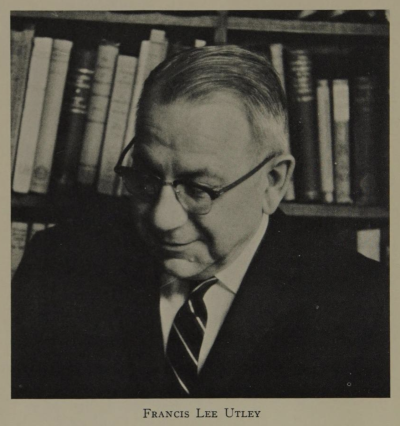
Utley instituted the University's folklore programs, and he established the Folklore Archive in the 1961, as a joint effort between the Schools of Music and Education, and the Departments of English and Anthropology. In the Archive, Utley’s extensive record collection is housed, as well as many other folklore collections. (Pat Mullen significantly expanded this archive through his work to store the ethnographic collection projects undertaken by the students in the Introduction to Folklore course. A growing number of other Folklore scholars at OSU have also contributed materials to the Archive. For more information on the Archive, please visit About the Archive.)
With Utley at the helm, the folklore program at OSU developed across two different departments – with textual studies (e.g., the ballad and the folktale) in the English department and ethnographic research in the Anthropology department (Mullen and Shuman 240).
While folklore has always been at the fringe of OSU’s English department, as former CFS directors Pat Mullen and Amy Shuman write in their contribution to Not Even Past: A History of the Department of English, The Ohio State University, 1870–2000, “The Ohio State University's English Department has played a significant role in the history of the discipline, and the discipline of folklore has, in turn, been significant for the Department” (97). Utley was a primary player in this development.
While Utley was a fantastic folklorist, he did not conduct ethnography, a practice that grew in popularity in the 1960s and 1970s as folklore studies drew more on the field of anthropology to inform the discipline. To fill this gap in OSU’s Folklore studies, Utley looked for a scholar trained in English and folklore, resulting in the English department’s hiring of Patrick “Pat” B. Mullen as an Assistant Professor in 1969.
The Center for Folklore Studies
Folklorists and OSU English professors Pat Mullen and Amy Shuman founded the Center for Folklore Studies (CFS) in the 1990s to centralize the folklore community on campus. Mullen served as the first director for the Center, and Shuman as the second.
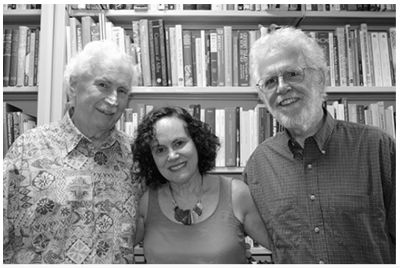
The interdisciplinary nature of the Folklore program at OSU, currently straddling English and the Comparative Studies (established as a department at OSU in 2001), has benefitted since the establishment of the Center as it unites scholars and researchers from across a multitude of departments at OSU. In addition to maintaining the Archive, CFS is responsible for coordinating Folklore course programming; hosting Folklore events on and off campus, including guest lectures, film screenings, and monthly Folklore lunches; supporting the Student Folklore Association; and providing community outreach.
Program Development
The folklore program at OSU has evolved significantly across the years. As Mullen and Shuman write, "From Utley’s day until Barnes and Mullen joined the English Department in the late 1960s, OSU offered only one folklore course, which could be taken for advanced undergraduate or graduate credit. The courses were expanded in the early 1970s into separate undergraduate and graduate courses" (Mullen and Shuman 244). To learn more about our current folklore programs for undergraduate and graduate students, please visit our Programs of Study page.
At the core of the folklore program at OSU are four key qualities: "(1) a strong theoretical program that continues to reconsider the ways that tradition and heritage are reconceptualized in discourses of the present; (2) the integration of ethnographic and textual research methodologies; (3) international, postcolonial, and interdisciplinary research on a wide range of groups often marginalized by race, class, gender, and/or ability; and (4) community engagement" (Mullen and Shuman 248).
This last component, community engagement, cannot be stressed enough. As Mullen and Shuman write, "OSU’s folklore program has been a story of developing relationships with fellow travelers" (248). CFS invites fellow travelers to join our community by attending our events. Please visit our Events page.
Directors
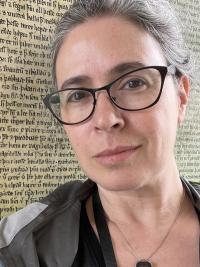
Merrill Kaplan (2024-present)
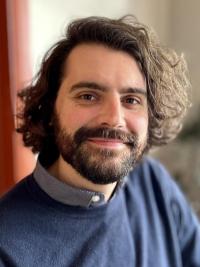
Jasper Waugh-Quasebarth (2023-2024)
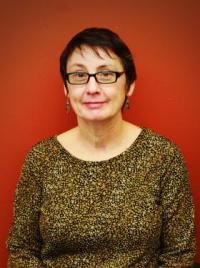
Katey Borland (2014-2023)
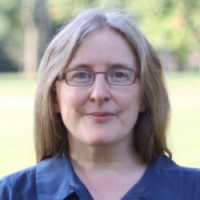
Dorry Noyes (2005-2014)
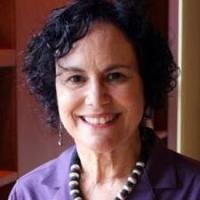
Amy Shuman (second director, 1995-2005)
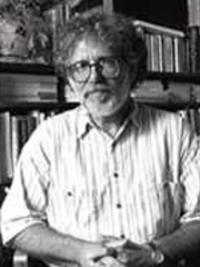
Patrick Mullen (first director, until 1995)
Resources
- Mullen, Patrick B. and Amy Shuman. "Folklore and Interdisciplinarity at the Ohio State University." Folklore in the United States and Canada: An Institutional History, edited by Rosemary Levy Zumwalt and Patricia Sawin. Indiana University Press, 2020. pp. 239-251. Project MUSE muse.jhu.edu/book/97611.
- Rosenberg, Bruce A., and Jerome Mandel, editors. Medieval Literature and Folklore Studies: Essays in Homor of Francis Lee Utley. Rutgers University Press, 1971.
